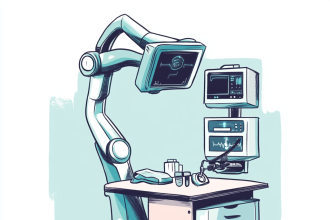As first reported by MedCity News, hospitals under mounting financial pressure are increasingly looking to artificial intelligence as a tool to streamline operations and reduce costs. But according to Prashant Karamchandani, senior partner in financial transformation at Chartis, the technology alone is not a panacea. Speaking at the HFMA Annual Conference in Denver, he warned that successful AI implementation requires up-front investment in organizational readiness, governance structures, and change management practices.

Source: x.com/TheChartisGroup/status/1943340133563973982.
“There’s great opportunities there,” Karamchandani noted, “but you can’t just assume that you buy it, you implement it, and then great things happen.” Without a structured foundation—including clarity on roles, accountability, and long-term performance optimization—health systems risk misusing or underutilizing their AI investments.
Where AI fits best in hospital operations
Karamchandani identified revenue cycle management as one of the most promising areas for AI-driven transformation. Administrative tasks across the front, middle, and back office—such as verifying insurance eligibility, submitting prior authorizations, and processing claims—are ripe for automation. Particularly amid rising rates of clinical denials (currently affecting nearly 15% of claims submitted to private payers), hospitals are eager to adopt AI tools that can reduce administrative burden and improve denial management ROI.
Beyond revenue cycle optimization, AI can also help offset staffing shortages and support operating model transformations. As hospitals prepare for broader challenges like tariff changes, potential Medicaid cuts, and economic uncertainty, many are exploring automation, care delivery shifts to outpatient or virtual settings, and strategic partnerships to shore up financial resilience.
A strategic roadmap is essential
Despite AI’s potential, Karamchandani emphasized that hospitals must treat it as a component of a broader strategy—not a standalone solution. Success depends on embedding AI into a cycle of continuous improvement and ensuring alignment with long-term organizational goals. Governance, accountability, and clear delineation between human and automated roles are critical to achieving sustainable outcomes.
While AI can play a significant role in helping hospitals navigate today’s financial challenges, its real value lies in being part of a well-planned, long-term transformation strategy. As Karamchandani cautioned, health systems must invest in the right foundations—people, processes, and oversight—to realize the full benefits of AI and position themselves for operational success in an uncertain future.





